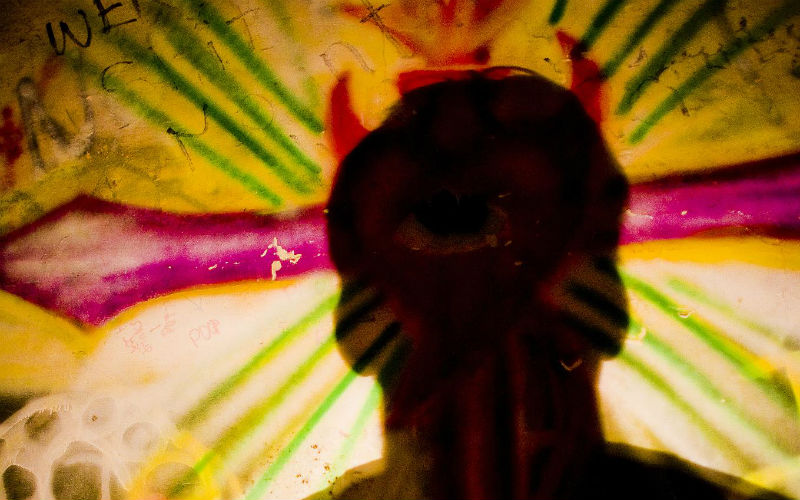This is hilarious coming from a Catholic. Downright hilarious. As if Catholicism isn't full of man made tradition. LOL. Get real.
It's not our fault you refuse to differentiate between customs and rubrics with Tradition (properly defined, which you never do)
God is infallible. Scripture is infallible. Councils and creeds and all the religious nonsense you believe in are not infallible.
Then you automatically rule out the canon of Scripture, preserved, defined and proclaimed by the very councils you reject, a stupid exercise in futile circular reasoning.
Did you somehow miss when I said that I'm not a Calvinist? This seems to be mostly a rant against Calvinism. I almost fell asleep reading this. I did notice the nonsense about Jesus's body and blood being "really and actually present" through the Eucharist. What a joke that is. You can't be taken seriously when you believe in utter nonsense like that.
source is not a rant against Calvinism, it's an explanation of the Incarnation principle. To reject that is to reject the Incarnation itself but you don't know any better.
There have been a number of stories in the news lately of small Satanic groups publicly performing so-called “Black Masses.” These rituals are based on the Catholic mass but are inverted toward Satan and often involve the desecration of a Eucharistic host. This sort of thing is evil and should

www.churchpop.com
You can't be taken seriously when you keep running from official teaching. Conjuring phantoms and false caricatures of the Eucharist is more fashionable.
+++
God became man (Jesus Christ our Lord and Savior). The incarnation was the event in salvation history that raised matter to previously unknown heights. All created matter was “good” from the start (Gen 1:25), but was “glorified” by the incarnation.
Ritual and “physicality” were not abolished by the coming of Christ. Quite the contrary: it was the incarnation that fully established sacramentalism as a principle in the Christian religion. The latter may be defined as the belief that matter can convey grace.
It's really that simple, at bottom, or in essence. God uses matter both to help us live better lives (sanctification) and to ultimately save us (regeneration and justification), starting with baptism itself.
The atonement or redemption of Christ (His death on the cross for us) was not purely “spiritual”. It was as physical (“sacramental”, if you will) as it could be, as well as spiritual. Protestants often piously refer to “the Blood of Jesus,” and rightly so (see Rev 5:9; Eph 1:7; Col 1:14; Heb 9:12; 1 Pet 1:2; 1 Jn 1:7; etc.). This is explicitly sacramental thinking.
It was the very suffering of Jesus in the flesh, and the voluntary shedding of His own blood, which constituted the crucial, essential aspect of His work as our Redeemer and Savior. One can't avoid this: “he was bruised for our iniquities” (Is 53:5).
So it is curious that many Protestants appear to possess a pronounced hostility to the sacramental belief of the Real Presence in the Eucharist, seeing that it flows so straightforwardly from the incarnation and the crucifixion itself.
This brings to mind an analogy to the Jewish and Muslim disdain for the incarnation as an unthinkable (impossible?) task for God to undertake. They view the incarnation in the same way that the majority of Protestants regard the Eucharist.
For them God wouldn't or couldn't or shouldn't become a man (such a thought is blasphemous; unthinkable!). For many (not all) Protestants, God wouldn't or couldn't or shouldn't become substantially, physically, sacramentally present under the outward forms of bread and wine.
The dynamic or underlying premise is the same. If Christ could become man, He can surely will to be actually and truly present in what was formerly (and still looks like) bread and wine, once consecrated.
The New Testament is filled with incarnational and sacramental indications: instances of matter conveying grace. The Church is the “Body” of Christ (1 Cor 12:27; Eph 1:22-23; 5:30), and marriage (including its physical aspects) is described as a direct parallel to Christ and the Church (Eph 5:22-33; esp. 29-32).
Jesus even seems to literally equate Himself in some sense with the Church, saying He was “persecuted” by Paul, after the Resurrection (Acts 9:5).
Not only that; in St. Paul's teaching, one can find a repeated theme of identifying very graphically and literally with Christ and His sufferings (see: 2 Cor 4:10; Phil 2:17; 3:10; 2 Tim 4:6; and above all, Col 1:24).
Matter conveys grace all over the place in Scripture:
- baptism confers regeneration (Acts 2:38; 22:16; 1 Pet 3:21; cf. Mk 16:16; Rom 6:3-4; 1 Cor 6:11; Titus 3:5).
- Paul's “handkerchiefs” healed the sick (Acts 19:12),
- as did even Peter's shadow (Acts 5:15),
- and of course, Jesus' garment (Mt 9:20-22)
- and saliva mixed with dirt (Jn 9:5 ff.; Mk 8:22-25),
- as well as water from the pool of Siloam (Jn 9:7).
- Anointing with oil for healing is encouraged (Jas 5:14).
- We also observe in Scripture the laying on of hands for the purpose of ordination and commissioning (Acts 6:6; 1 Tim 4:14; 2 Tim 1:6) to facilitate the initial outpouring of the Holy Spirit (Acts 8:17-19; 13:3; 19:6),
- and for healing (Mk 6:5; Lk 13:13; Acts 9:17-18).
- Even under the old covenant, a dead man was raised simply by coming in contact with the bones of the prophet Elisha (2 Kings 13:21): which is also one of the direct evidences for the Catholic practice of the veneration of relics (itself an extension of the sacramental principle).
Sacramentalism is a “product” of the incarnation, just as the Church also is. But we must also understand that the sacraments are not “magic charms.” The Church also teaches that one should have the correct “interior disposition” when receiving them. Fr. John A. Hardon, S. J.: the great catechist, wrote, in an entry on “Sacramental Dispositions”:
Condition of soul required for the valid and/or fruitful reception of the sacraments. . . . In the recipient who has the use of reason is required merely that no obstacles be placed in the way. Such obstacles are a lack of faith or sanctifying grace or of a right intention.
(
Modern Catholic Dictionary, Garden City, New York, Doubleday & Company, 1980, 477)
Likewise,
The Catechism of the Catholic Church, in its section on
ex opere operato (#1128), notes:
“Nevertheless, the fruits of the sacraments also depend on the disposition of the one who receives them.”
The sacrament of the Eucharist, for example, will not have a positive effect or convey grace if received by a person in mortal sin (see 1 Cor 11:27-30; CCC #1415), and priestly absolution is null and void without the necessary prerequisite of true repentance.
This is all the more true of sacramentals (things like holy water, scapulars, blessings, miraculous medal, genuflection, etc.), which depend entirely on the inner state of the one using or receiving them. Intent, sincerity, motivation, piety, and suchlike are all supremely important in the Catholic life.
The scapular will not “work” for a person who neglects the pursuit of righteousness and obedience and views it as a “magic charm” (which is occultic superstition) rather than a Catholic sacramental. A piece of cloth cannot rescind the normal duties of the Catholic life.
Nor is God some sort of celestial “vending machine.” He wants our
hearts; he wants
us: not meaningless outward obedience without the proper interior motivation, in love, and by His grace. Sacraments help us, but we must do our part, too.
sourcewww.papalencyclicals.net






